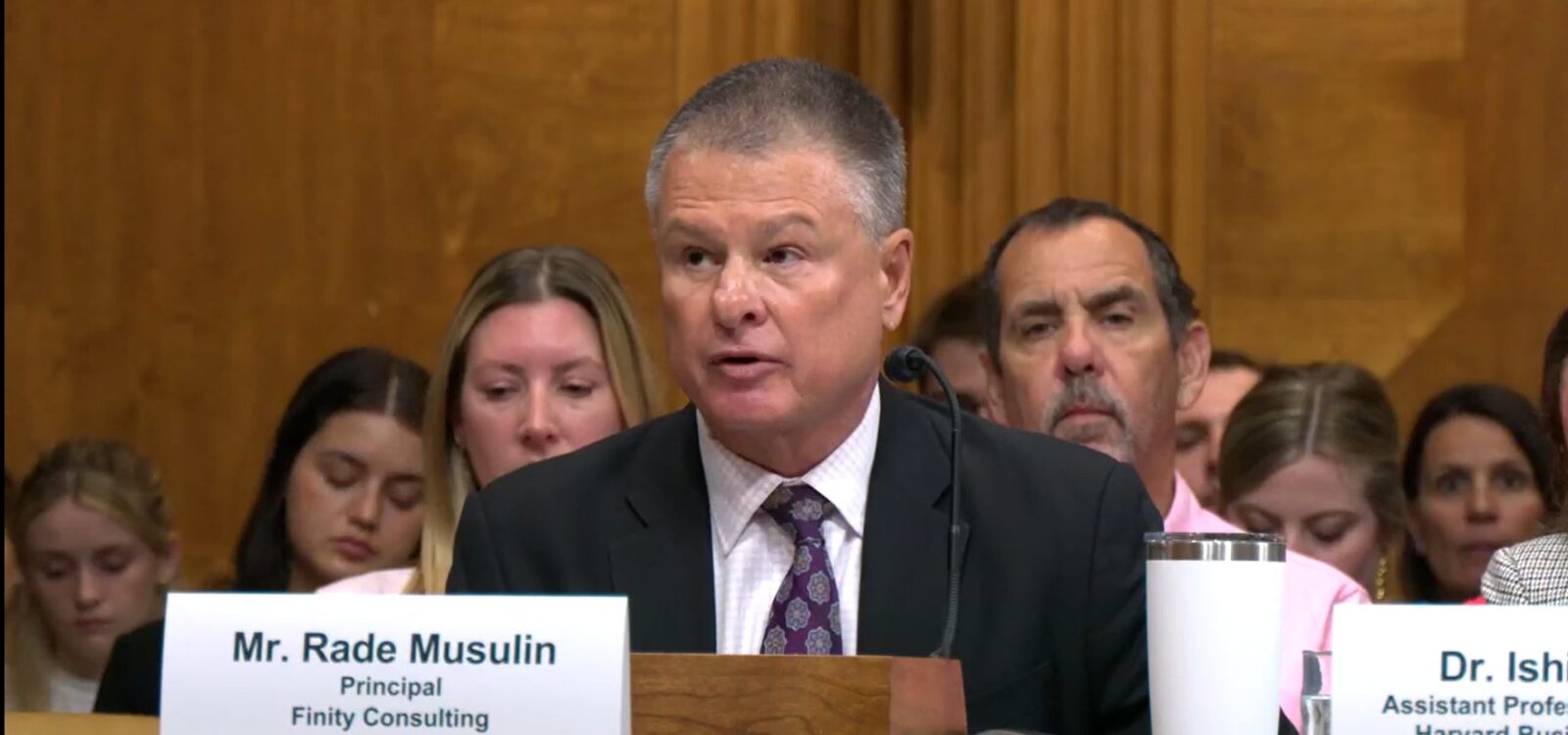
My U.S. Senate Testimony on Insurance and Climate Change
In his testimony before the U.S. Senate Committee on the Budget, Rade Musulin discussed the U.S. insurance system’s challenges, the impact of climate change and lessons from Florida’s approach.
I recently had the distinct honour of testifying before the U.S. Senate Committee on the Budget in Washington D.C. This opportunity allowed me to share insights on the critical issues facing the U.S. insurance system, particularly in the context of natural hazards and climate change.
An Australian perspective
As an actuary based in Australia and working for Finity, my expertise in natural hazard risks and insurance mechanisms has a global perspective. This international viewpoint enriched my testimony, especially considering the shared challenges between the U.S. and Australia in dealing with climate change and natural disasters.
Florida’s insurance system: A case study
My career has spanned significant events, including Florida’s response to Hurricane Andrew, which led to the creation of the Florida Hurricane Catastrophe Fund (FHCF) and Citizens Property Insurance Corporation. These entities illustrate innovative approaches to disaster funding, using public capital sources to mitigate upfront costs through post-event bonding and assessments.
Financial exposure and policyholder burden
One key point I emphasised was the financial exposure Floridians face due to the state’s unique funding mechanisms. Both the FHCF and Citizens can levy assessments on almost all insurance policyholders in Florida (including motor), spreading the financial burden of large losses across a broad base. While this has successfully stabilised the market in the past, it also exposes residents to significant debt and repayment obligations following major events. Additionally, this system indirectly subsidises high-risk policies, encouraging development in vulnerable areas and driving up long-term costs.
Market challenges and affordability issues
I highlighted the growing challenges facing Florida’s insurance market. Despite improvements in building codes and a strong record of meeting claims obligations, the state’s insurance premiums remain the highest in the U.S. This is due to several factors, including heightened hurricane risk, claims cost inflation, and pervasive litigation. The average premium for US$300,000 of homeowner insurance in Florida is three times the national average (over US$6,000/year), causing severe affordability issues for consumers. A major hurricane striking a densely populated area like Miami could exceed the system’s funding capacity, triggering long-lasting assessments. This “insurance affordability” narrative bears a striking resemblance to that here in Australia, a story my colleagues have achieved renown for telling.
The impact of climate change
Looking ahead, the impact of climate change is a major concern. The increasing frequency and intensity of hurricanes, as evidenced by recent events like Hurricane Otis and record-high water temperatures off Florida, portend greater future losses. This will further strain the insurance system, potentially leading to solvency issues, non-renewals, and an expanded role for government insurance pools.
Lessons from Florida for the global community
From my vantage point in Australia, I drew attention to Florida’s experience as a cautionary tale for other coastal states and countries. Despite innovative solutions and substantial efforts to address hurricane risks, high premiums and heavy reliance on debt and assessments remain persistent issues. Most current building codes and land-use policies do not adequately reflect future risks. Addressing these challenges requires long-term commitment and difficult policy decisions.
The future is in innovation and collaboration
My testimony aimed to shed light on the urgent need for robust, forward-looking strategies to manage natural hazard risks. As we confront the realities of climate change, the insurance industry (globally) must continue to innovate and collaborate with public sector entities to ensure a resilient and sustainable insurance system.
For a detailed account of my testimony, you can watch a recording or access the full transcript here and view coverage on my testimony here.
Originally published on Finity.com.au.
CPD: Actuaries Institute Members can claim two CPD points for every hour of reading articles on Actuaries Digital.






